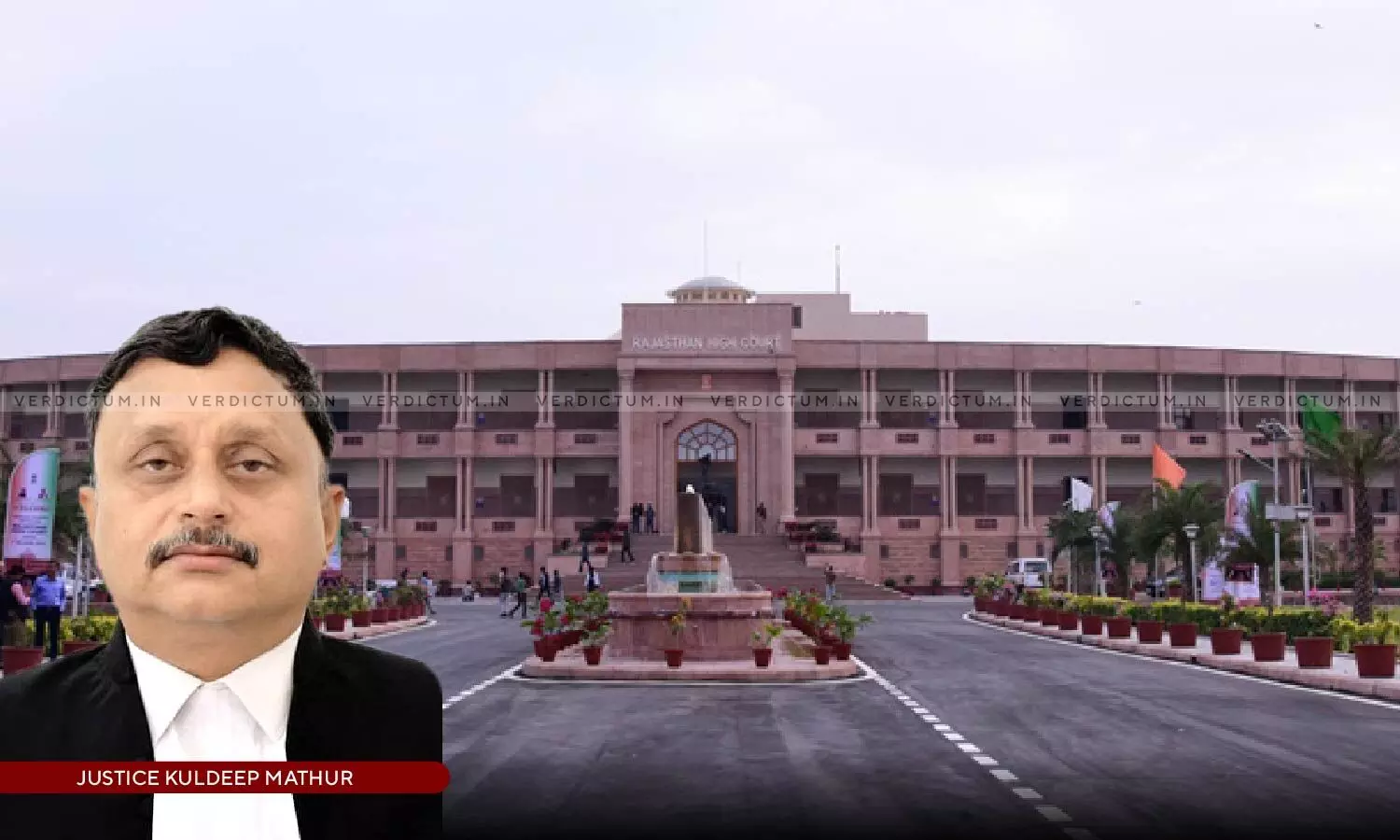
Man And Woman Merely Living Together As Husband And Wife Not Bigamy: Rajasthan HC
 |
|Rajasthan High Court quashed two-decade-old bigamy charges against a 70-year-old man holding that a man and a woman living together as husband and wife would not be an offence under Section 494 of the IPC.
The Bench allowed a petition filed by a husband under Section 482 of the CrPC to quash the criminal proceedings under Section 494 IPC. The wife had filed a criminal complaint alleging that her husband had solemnized a second marriage with another woman after performing essential religious ceremonies.
A Single Bench of Justice Kuldeep Mathur observed, “It is settled law that the offence punishable under Section 494 IPC would be made out against any person if he/she solemnizes a marriage during the lifetime of either the husband or wife; as the case may be. The mere fact of a man and a woman living together as husband and wife would not be considered as an offence punishable under Section 494 IPC if they have not performed of a valid marriage in accordance with the existing law.”
Advocate Navneet Poonia represented the petitioner, while PP AR Choudhary appeared for the respondents.
The wife had filed a complaint 20 years after the alleged incident, accusing her husband of offences under Sections 498-A (cruelty by husband or his relatives), 406 (criminal breach of trust), 323 (voluntarily causing hurt), 494 (marrying again during lifetime of husband or wife), and 497 (adultery) of the IPC.
The husband argued that the bigamy complaint, made twenty years after the incident, was intended solely to harass and humiliate him.
The Court noted that the essential requirement for a charge under Section 494 IPC is the performance of a valid marriage during the lifetime of the spouse. Mere cohabitation does not constitute a valid marriage under Hindu law without the essential ceremonies.
The Bench stated that there was no evidence to suggest that the husband had performed essential ceremonies in accordance with the Hindu Marriage Act, 1955 or “Nata marriage” with the other woman he was living with.
“There is nothing on record to establish that the petitioner is living with Smt.Raju Devi after performing ceremonies of hindu religion with an intention to declare their relation as “husband-wife” under a valid marriage. It is also to be noticed that even if it is presumed that the petitioner has performed Nata marriage with Smt.Raju Devi, then also there is nothing on record to establish as to whether the same was done by following the marriage ceremonies required by the personal law governing the parties or by following the essential ceremonies for a Nata marriage,” the Court remarked.
Accordingly, the High Court allowed the petition.
Cause Title: ABC v. State of Rajasthan & Anr. (Neutral Citation: 2024:RJ-JD:20077)
Appearance:
Petitioner: Advocate Navneet Poonia
Respondents: PP AR Choudhary; Advocate Aasu Devi